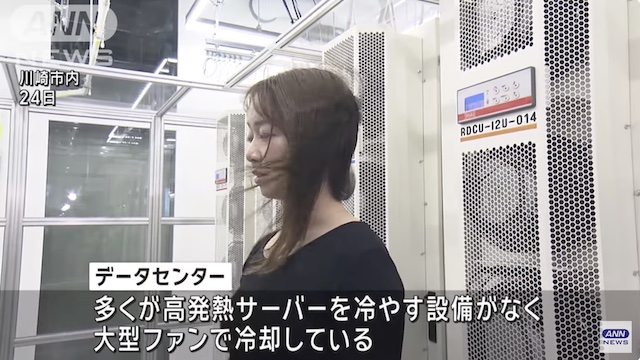TOKYO, May 24 (News On Japan) - NTT has unveiled Japan's first technology aimed at improving the power efficiency of data centers, which are known for their high heat generation and substantial power consumption.

The rapid advancement of generative AI has led to a significant increase in power consumption by data centers, raising concerns.
Currently, most data centers in Japan lack the equipment to cool high-heat servers, relying instead on large fans for cooling.
NTT Communications will be the first in Japan to introduce water-based server cooling technology in data centers.
By circulating water at approximately 20°C through pipes to directly cool the chips, this method is expected to improve power efficiency by about 30%.
The system is scheduled to start operations by March next year.
It is estimated that the annual power consumption of data centers worldwide will increase by approximately 2,600 times by 2050 compared to 2018.
Source: ANN














